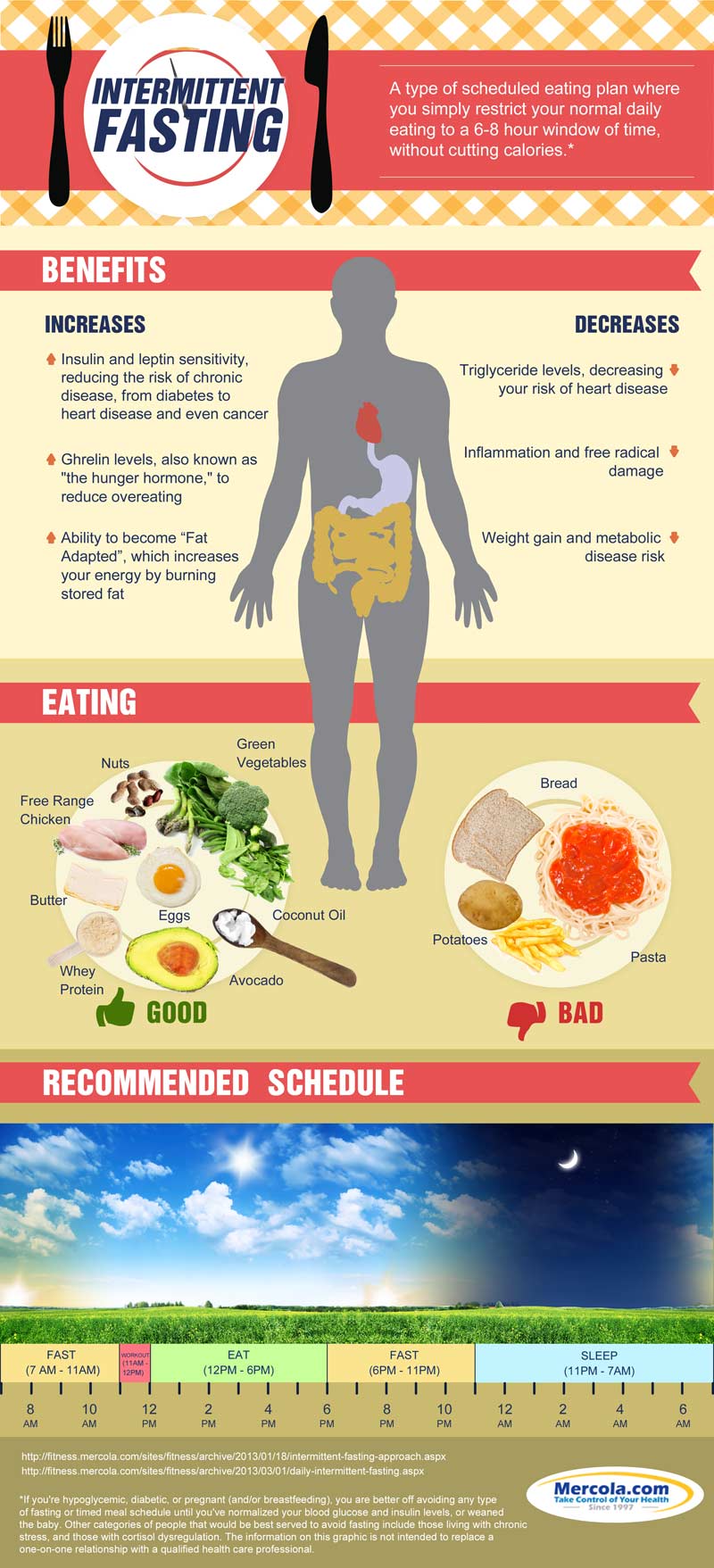Contributing Writer for Wake Up World
“Humans live on one-quarter of what they eat; on the other three-quarters lives their doctor.” ~ Egyptian pyramid inscription, 3800 B.C.
Mark Mattson is an expert on food deprivation. A scientist at the National Institute on Aging and a professor of neuroscience at Johns Hopkins School of Medicine, Mattson has been studying for decades the effect fasting has on mental and physical health, as well as how it influences aging. He’s considered the foremost expert in the field of Alzheimer’s and brain research. And he’s a major advocate for skipping meals.
[pro_ad_display_adzone id=”110028″]
Mattson himself only eats one meal a day — and says, because of it, he has more energy, mental clarity and focus, along with heightened levels of productivity. “As is similar to what happens when muscles are exercised, the neurons in the brain benefit from being mildly stressed. To achieve the right kind of stress, people might benefit from severely minimizing their food intake,” he told Michael Anft in “Don’t feed your head.” Worldwide, participants involved with various forms of fasting have healed a wide-range of health complaints, from diabetes to obesity and heart disease.
Now a number of physicians have come forward, enthusiastically praising the benefits of the practice. But in the West, where access to food is abundant and even excessive, the thought of going without appears to be a ghastly and unpleasant exercise in unnecessary hardship. Even so, when faced with sky-rocketing cancer rates and an uncomfortable spike in Alzheimer’s disease, our curiosity might just get the better of us — and we may decide to have a look at this seemingly foreign practice, which promises exceptional health and more.
Why fast?
When we explore how our bodies evolved, fasting makes quite a bit of sense on several levels. Obviously, grocery stores and access to food 24/7 isn’t how we developed as humans. A more realistic scenario encompasses food scarcity — especially during seasons of severe weather. Winter and spring are traditionally lean times, where our bodies naturally adapt to lower caloric intake. Part of this adaptation involves the brain, as Mattson explains:
“Our ancestors undoubtedly had to go without food for stretches of time. It hasn’t been that long since humanity lacked regular supplies of food. When you search for food when you’re hungry, the brain is really engaged. The individuals who survive the best—the ones whose brains are more attuned to predators and who can remember where food sources are—are the ones who’ve survived.”
When we fast, messaging chemicals that operate at the cellular level are stimulated, which encourage the growth of brain cells. As these neurons grow, a protective mechanism kicks in and our brain becomes more resistant to damage caused by Parkinson’s, or the protein plaques that aggravate cases of Alzheimer’s.
It has long been known that fasting exerts a positive influence over those who suffer from epileptic seizures. Scientists believe calorie deprivation triggers a process within the brain that helps to calm the overexcited signals which an epileptic brain displays. Overfed normal brains exhibit another kind of unruly excitation, which ultimately leads to impairment in brain function.
Ketones are also produced — a type of acid that is created when the body begins to use fat instead of carbohydrates for energy. In lieu of glucose, ketones provide an alternate, less damaging fuel for the brain. Fasting also increases the number of mitochondria in nerve cells, creating more energy in the process. Fasting improves learning and memory factors as well.
If improved brain function isn’t enough to convince you to give fasting a try, consider this: the practice can significantly lower the risk of cancer and heart disease — and even reverse early-stage diabetes.
How the “Fast Diet” can revolutionize health
Overweight and pre-diabetic, Dr. Michael Mosley decided to forgo the standard regiment of pharmaceuticals and instead seek a solution to his health issues elsewhere.
“I started off by looking at calorie restriction and saw that the research was really great — it’s pretty much the only thing that extends life,” Mosley told the Huffington Post. “The problem is it just is impossible to do — I could not imagine myself never eating the things I love. So I started investigating intermittent fasting as a way to control calories.”
Mosley spent months researching the science behind intermittent fasting — a method of drastically altering caloric intake — and eventually tested the approach on himself. As the experiment progressed over three months, he shed 19 pounds of fat and watched his cholesterol normalize. Moreover, his insulin resistance completely disappeared.
The version of fasting described in Mosley’s bestselling book — “The Fast Diet” — is one of the least uncomfortable forms of the practice. Called the 5:2 plan, it prescribes normal eating patterns for five days a week and then two days of fasting on less than 500 calories per day for women, 600 for men. According to the book, inflammation is curbed and degenerative disease is significantly slowed — if not completely prevented. A happy side-effect of the program is a svelte physique where fat — not muscle — is reduced. Additionally, animal tests have shown food restriction retards aging and increases longevity by an impressive 30-40%.
Fasting and high-intensity exercise
In this video, Dr. Joseph Mercola interviews Dr. Michael Mosley about intermittent fasting and how it can help us live healthy and longer.
With all the benefits of fasting, why wouldn’t Westerners embrace the practice with open arms? Besides the usual aversion to even the slightest discomfort, Mark Mattson suspects another culprit behind our resistence, which he addresses in his TEDx Johns Hopkins University talk:
“There are a lot of pressures to have that eating pattern [three meals a day plus snacks]. There’s a lot of money involved. The food industry — are they going to make money from skipping breakfast like I did today? No, they’re going to lose money. If people fast, the food industry loses money. What about the pharmaceutical industries? What if people do intermittent fasting and exercise periodically and they are very healthy, is the pharmaceutical industry going to make any money on healthy people?”
Why fasting bolsters brain power: Mark Mattson at TEDx Johns Hopkins University.
There are several methods of intermittent fasting. Dr. Mercola provides another example with this infographic:
Article sources
- “The Fast Diet: Lose Weight, Stay Healthy, and Live Longer with the Simple Secret of Intermittent Fasting” Michael Mosley, Atria Books, 2015
- www.annualreviews.org/doi/pdf/10.1146/annurev.nutr.25.050304.092526
- www.hub.jhu.edu/magazine/2012/summer/dont-feed-your-head
- www.huffingtonpost.com/2013/03/29/michael-mosley-the-fast-diet-intermittent-fasting-uk-pbs_n_2977893.html
- www.fitness.mercola.com/sites/fitness/archive/2012/05/04/fasting-effects-on-human-growth-hormone.aspx
- www.npr.org/templates/transcript/transcript.php?storyId=205845319
- www.articles.mercola.com/sites/articles/archive/2015/09/21/intermittent-fasting-calorie-restriction.aspx
About the author:
 Carolanne Wright enthusiastically believes if we want to see change in the world, we need to be the change. As a nutritionist, natural foods chef and wellness coach, Carolanne has encouraged others to embrace a healthy lifestyle of organic living, gratefulness and joyful orientation for over 13 years.
Carolanne Wright enthusiastically believes if we want to see change in the world, we need to be the change. As a nutritionist, natural foods chef and wellness coach, Carolanne has encouraged others to embrace a healthy lifestyle of organic living, gratefulness and joyful orientation for over 13 years.
Through her website Thrive-Living.net, she looks forward to connecting with other like-minded people from around the world who share a similar vision. You can also follow Carolanne on Facebook, Twitter and Pinterest.
Recommended reading from Carolanne Wright:
- Seed Bombs: A Creative (and Fun) Mission to Save the Bees and Butterflies
- Mind Control, Subliminal Messages and the Brainwashing of America
- Autistic Boy with Higher IQ Than Einstein Discovers Gift After Removal from State-Run Therapy
- Monsanto Charged with Crimes Against Nature and Humanity – Set to Stand Trial in 2016
- Dr Sebi: The Man Who Cures Aids, Cancer, Diabetes and More
- Politicians in California May Soon be Forced to Wear Corporate Sponsor Patches Like Nascar Drivers
- Plastic-Eating Mushroom Discovered in the Amazon Rainforest — A Solution for Our Trash Saturated World?
- Big Pharma and Organized Crime — They are More Similar Than You May Think
- Over 100 Scientific Studies Agree: Cannabis Annihilates Cancer
- Emotional Energetic Healing: The Future of Medicine is Here
- Why Every Parent Should Consider Unschooling
- The Greenhouse of the Future: Grow Your Own Food Year-Round With This Revolutionary System
- First U.S. City Produces More Electricity Than It Uses — With 100% Renewable Technology
[pro_ad_display_adzone id=”110027″]









